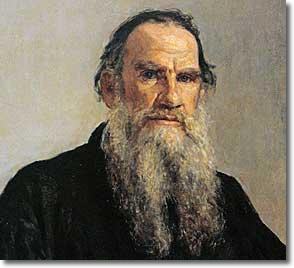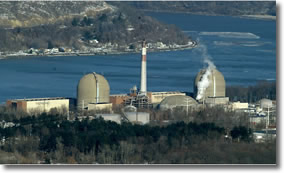Rad note » this entry originated from another page. It was moved here because the subject drifted far enough to warrant its own, separate page, which lets me focus on and reference more easily the concepts under discussion here.
At the end of this entry (that you're reading now) I will include a link that will return you to the exact place from where this entry originated. Here ya go ...
» Russian Greats Weave the Eternal Golden Thread of Scripture Thru Their Timeless Novels
 I noticed that both Tolstoy and Dostoevsky weave verses-of-scripture into their stories.
I noticed that both Tolstoy and Dostoevsky weave verses-of-scripture into their stories.
[ I was going to, instead, write » 'weave into their stories verses of scripture' ..
.. which is better writing.
But notice how that is not weaving the words. And therefore not recursive.
And recursion is where the power is. In writing both narrative and computer programs. ]
Both of them begin their timeless novels, for example, with a short verse that sets the tone and foreshadows things to come .. a mechanism that itself plays off the prophetic. A technique.
Tolstoy begins Anna Karenina (a novel claimed by many to be the finest written, in any language, ever, in the history of our species, homo sapiens) with a verse from the Old Testament that has echoed down thru the centuries » Vengeance is mine; I will repay.
Dostoevsky, on the other hand, begins The Brother Karamazov (a novel acclaimed the world over as one of the supreme achievements in literature) with a verse from John's gospel » Verily, verily, I say unto you, Except a corn of wheat fall into the ground and die, it abides alone. But if it dies, it bears much fruit.
[ I am talking about Writing here. Writing and writers. ]
Hemingway liked to use verses of scripture as his titles. I wonder if he got this idea while he was reading the Russians ..
.. sitting around a fire in the mountains of Austria during the winter months .. when Paris got ugly. And cold.
<ignore this intentional body-text marker>
••• today's entry continues here below •••
 Skiing during the day and reading the Russians at night.
Skiing during the day and reading the Russians at night.
Let the Russians take you into their fascinating worlds.
Let them escort you around the streets of centuries past ..
.. as you sip the Austrian schnapps.
Tolstoy takes you into the homes of the landed gentry ..
.. where social customs are well-established and where cultural norms are settled ..
.. but where only the wealthy-few may go.
For the rest of your destinations, where 99% of the real people live » Dostoevsky takes you there. To those places that are not so pretty. Where moral chaos reigns.
I also noticed that scripture says that God's word -- "the word of the Lord" -- is eternal.
I see this [ seasoning your prose with references to verses of scripture ] as weaving eternal golden threads thru your writing (.. which, perhaps, can help it endure the ravages of the passage of time).
People often have preconceived notions of scripture (.. and all things related to religion). So care must be exercised. Or the reader will be put off. Offended.
But a well-selected, thought-provoking use of scripture .. can add a bit of gravity to a piece. (It can add many other things, too.)
When I set out to research scripture for myself, I found out it was considerably different from what I had been taught in Catholic Sunday school. (All those years.)
I found many things there that the nuns never told me about. And I didnt find some of the things that they said were in there. (Such as purgatory, where I was planning to spend much time in spiritual rehab.)
Because .. if the writer is going to season his writing with verses of scripture .. if he is going to weave eternal golden threads thru his stories .. he will (first) have to learn what scripture actually says.
For himself. And not rely on what somebody else said.
Obvious, no?
In the arts, as in most things, longevity and endurance speak to quality.
» Working With a (Funny) Scriptural Literate
 I worked with this guy who knew scripture pretty well.
I worked with this guy who knew scripture pretty well.
He had a big family. I learned things from him.
Quite a bit, because I worked there for years.
I liked the way he would weave certain bible stories into the particular challenge we were facing.
And he usually did it in a funny way.
He would say things like » "Our masters demand we make bricks, but they give us no straw."
And » "Our masters reap where they do not sow." (.. meaning that our bosses were cruel, "hard men" for telling us to do something particularly difficult).
Anyway, my point is » his ability to use scripture and biblical stories impressed me. It also made me feel like all those years in Catholic Sunday school after church .. were a waste. I mean he was vastly beyond me.
The end. ■
You can return to the exact spot from where this entry originated .. see » here.
<ignore this intentional bottom text spacer, too>
